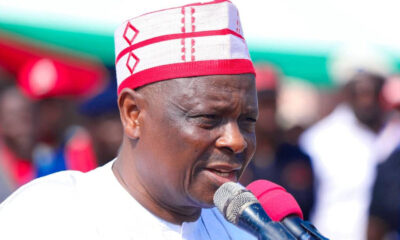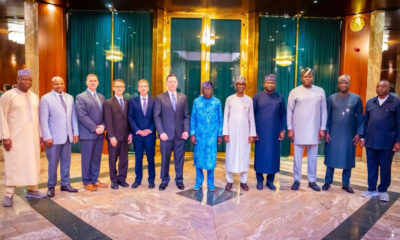News
No evidence USAID funds Boko Haram, says US envoy to Nigeria
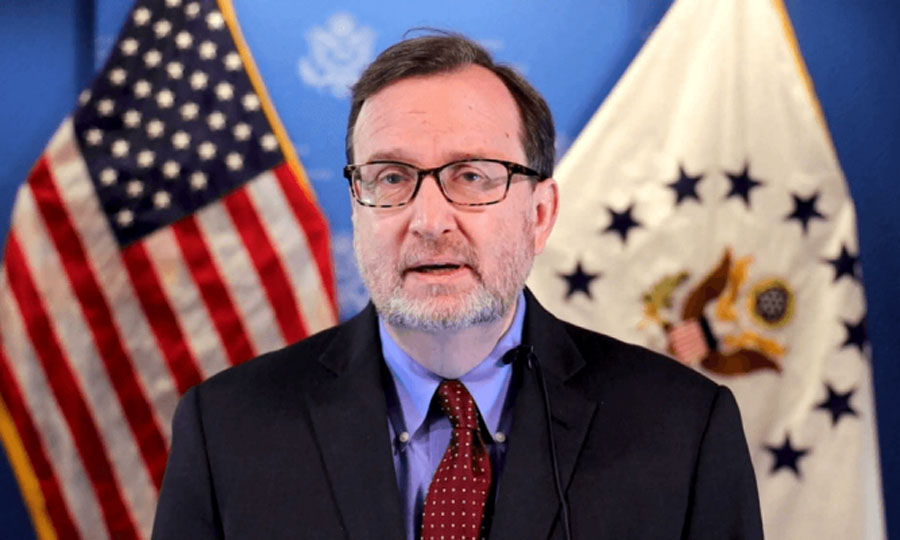
No evidence USAID funds Boko Haram, says US envoy to Nigeria
The United States Ambassador to Nigeria, Richard Mills has asserted that there is no evidence linking the United States Agency for International Development (USAID) to the funding of Boko Haram or any terrorist organisations.
He stated this after a meeting with the Nigeria Governors’ Forum in Abuja on Wednesday night, emphasising that no country condemns the violence perpetrated by Boko Haram more vehemently than the United States.
He assured that if any evidence emerges, the U.S. government will collaborate with the Nigerian government to investigate it.
On February 13, U.S. Congressman Scott Perry alleged that the United States Agency for International Development (USAID) has been funding terrorist groups, including Boko Haram.
Perry, a Republican from Pennsylvania, made the claim during a hearing of the Subcommittee on Delivering on Government Efficiency, which focused on the alleged misuse of taxpayer funds. He accused USAID of channelling $697 million annually to groups such as Boko Haram, ISIS, and Al-Qaeda.
Boko Haram, founded in 2002 by Mohammed Yusuf, has caused widespread devastation in Nigeria, including thousands of deaths, displacement of families, and destruction of property worth billions of naira.
Perry’s remarks have sparked significant controversy, prompting both U.S. and Nigerian authorities to investigate.
The Nigerian Senate has summoned top security officials—including National Security Adviser Nuhu Ribadu and the heads of the National Intelligence Agency (NIA) and Defence Intelligence Agency (DIA)—to address these allegations in a closed-door session.
READ ALSO:
- Why we engaged another service provider for 2025 hajj – NAHCON
- Atalanta manager Gasperini under pressure to apologise to Lookman
- Canada issues 7,146 invitations for permanent residency in February 19th express entry draw
Meanwhile, U.S. Ambassador to Nigeria Richard Mills has dismissed the claims, stating there is no evidence that USAID funds are being diverted to Boko Haram or any terrorist group.
Mills reaffirmed the U.S.’s commitment to working with Nigeria to combat terrorism and ensure the proper use of American aid.
In response to inquiries, Mills stressed that the United States enforces stringent measures to ensure that USAID and other forms of American assistance do not fall into the hands of terrorist organisations like Boko Haram.
The American envoy said, “Let me be clear—there is no friend of Nigeria stronger in condemning Boko Haram’s violence and disregard for human life than the United States.
“We have designated Boko Haram as a foreign terrorist organisation since 2013, blocking the group from transferring assets to the U.S. and allowing us to arrest and seize its members.
“We cooperate in investigations with the Nigerian government. I can assure you that we have strict policies and procedures to ensure that USAID funding or any other U.S. assistance, whether from USAID, the Department of Defence, or the State Department, is not diverted to terrorist groups like Boko Haram.
“There is absolutely no evidence of such diversion, and if we ever had evidence that any programme funding was being misused by Boko Haram, we would immediately investigate it with our Nigerian partners.
“So, when it comes to Boko Haram, the United States stands with Nigeria in wanting to rid this country of the scourge that this organisation represents.”
The U.S. Ambassador clarified that the Trump administration’s 90-day pause on foreign aid was not a cut but rather a strategic move intended to enhance the effectiveness of the assistance.
READ ALSO:
- Netherlands returns over 100 Benin Bronzes
- Sacking elected LG chairs is treason, AGF tells govs
- Anambra governorship aspirant Valentine Ozigbo quits Labour Party
This temporary suspension aimed to allow for a comprehensive review of existing programmes and the development of improved strategies.
He explained, “No assistance has been cut yet and no decisions have been made about the future of our assistance. In fact, U.S. Secretary of State Marco Rubio has said that this is not about ending foreign assistance to our partners like Nigeria.
“It’s about making our assistance more effective and aligning it with U.S. government policies and interests.
“That’s what this 90-day pause is for. However, there are waivers for life-saving assistance, such as support for HIV patients, maternal and child nutrition, and internally displaced people. So that continues. In 90 days, we will know where we stand.”
The U.S. Ambassador to Nigeria shared insights on discussions held with the 36 state governors, highlighting the embassy’s vision for the future of U.S.-Nigerian relations.
These priorities include enhancing the business climate to boost trade and investment between the two nations, increasing transparency and accountability in Nigeria while combating corruption, and fostering greater engagement at the state and local government levels.
Additionally, he emphasised the importance of sustaining U.S. healthcare programmes in Nigeria, aiming to ensure their successful transition to Nigerian management as they continue to address critical health issues.
He stated, “I explained to them that we are going to focus on four key priorities in the coming years. The first is improving the business environment to increase trade and investment between the United States and Nigeria.
“Second, a renewed focus on improving transparency and accountability in Nigeria, fighting corruption, and empowering Nigerian voices advocating for more transparency.
“Third, we want to be more engaged at the subnational level, at the state level, and with local governing authorities. I believe the embassy needs to engage more in this area as we develop our programmes and assistance.
“Lastly, we discussed our healthcare programmes, which are a large part of U.S. assistance to Nigeria.
“As these programmes succeed—such as reducing HIV cases and eradicating polio—we want to ensure their sustainability and transition them to the Nigerian government at the federal and state levels.”
No evidence USAID funds Boko Haram, says US envoy to Nigeria
News
INEC Seeks N1.04 Trillion for 2027 Elections, Operational Needs – Amupitan
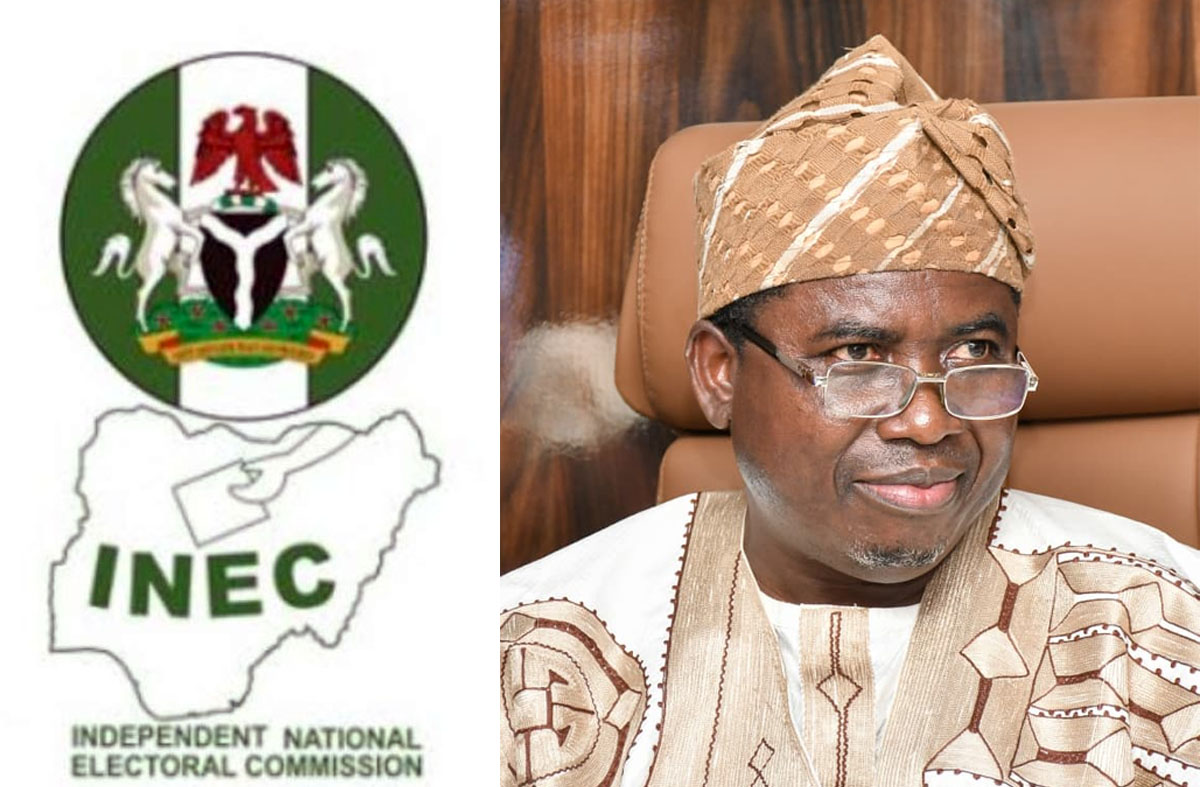
INEC Seeks N1.04 Trillion for 2027 Elections, Operational Needs – Amupitan
The Independent National Electoral Commission (INEC) has requested a total of ₦1.04 trillion from the Federal Government of Nigeria to fund off-cycle elections this year, the 2027 general election, and its operational activities in 2026, subject to approval by the National Assembly of Nigeria.
The request was made by INEC Chairman Prof. Joash Amupitan while defending the commission’s spending proposal before the Joint Committee on Electoral Matters of the National Assembly. Amupitan urged lawmakers to grant timely approval and release of funds, warning that delays could hamper preparations for upcoming elections.
According to the INEC chairman, the commission is seeking ₦873.778 billion for the 2027 general election and ₦171 billion for its 2026 operational activities. The 2026 allocation covers Federal Capital Territory (FCT) area council elections, by-elections scheduled for next week, and the Ekiti and Osun governorship elections slated for June and September.
READ ALSO:
- Alake: Killers of Mining Marshal Will Face Full Wrath of the Law
- Lagos Police Launch Manhunt for Suspect in Brutal Ajah Murder
- Lookman Shines as Atlético Madrid Hammer Barcelona 4-0
Breakdown of the 2027 Election Budget
The N873.778 billion earmarked for the 2027 general election includes:
- ₦379.748 billion for operational costs
- ₦92.317 billion for administrative expenses
- ₦209.206 billion for technology
- ₦154.905 billion for election capital costs
- ₦42.608 billion for miscellaneous expenses
For the N171 billion proposed for 2026 operations, Amupitan said:
- ₦109 billion would cover personnel costs
- ₦18.7 billion for overheads
- ₦42.63 billion for election conduct
- ₦1.4 billion for capital expenditure
He noted that the budget was prepared in line with Section 3(3) of the Electoral Act 2022, which mandates submission of election budgets at least one year before a general election.
Calls for Timely Fund Release and Dedicated Network
Amupitan criticized the envelope system of budgeting, describing it as unsuitable for INEC’s operational needs that often require urgent interventions. He appealed for a bulk release of funds, highlighting the need for a dedicated communication network to enhance accountability and transparency during elections.
“If we have our own network, Nigerians can hold us responsible for any hitch,” he said.
Lawmakers Back INEC’s Proposal
Senator Adams Oshiomhole argued that no government agency should impose the envelope budgeting system on INEC, emphasizing that full release of funds is critical for smooth election preparations. Similarly, House member Billy Osawaru called for the budget to be placed on first-line charge, allowing the commission access to all funds immediately.
Following deliberations, the joint committee approved a one-time release of INEC’s annual budget and pledged to consider increasing allowances for National Youth Service Corps (NYSC) members deployed for election duties. The proposed increase would cost ₦32 billion, equating to ₦125,000 per corps member.
Senator Simon Lalong, chairman of the Senate Committee on Electoral Matters, assured INEC of lawmakers’ support, pledging close collaboration to ensure a successful 2027 election. House Committee chairman Bayo Balogun also promised legislative backing but cautioned INEC against overpromising, citing prior misrepresentations about real-time uploads to the INEC Result Viewing (IReV) portal, which was never provided for in the Electoral Act but only in INEC regulations.
The approval of the commission’s budget and operational requests is expected to enhance election preparedness, technological deployment, and transparency ahead of the 2027 general elections, while addressing logistical and operational challenges that have hampered past polls.
INEC Seeks N1.04 Trillion for 2027 Elections, Operational Needs – Amupitan
News
Aso Rock Goes Solar as Tinubu Orders National Grid Disconnection

Aso Rock Goes Solar as Tinubu Orders National Grid Disconnection
President Bola Tinubu will fully disconnect the Aso Rock Presidential Villa from the national grid by March 2026 following allegations of electricity overbilling for power not supplied, the State House has confirmed.
The State House Permanent Secretary, Temitope Fashedemi, made the disclosure while defending the 2026 State House budget before the Senate Committee on Special Duties. He revealed that the solar mini-grid project at the Presidential Villa was completed in December 2025 and is currently undergoing technical testing ahead of a full transition to solar power.
Fashedemi explained that during the testing phase of the new solar installation, officials discovered what he described as significant overbilling by the electricity distribution company. According to him, the State House observed instances where it was billed for electricity that was not supplied and has begun reconciliation discussions to address what he termed “legacy liability.”
READ ALSO:
- 2026 Electoral Bill: Senate Explains Limits of IReV in Real-Time Transmission
- El-Rufai to Appear Before EFCC After Alleged Airport Arrest Attempt
- Four Sentenced to Death for Murder of Ahoada DPO in Rivers
The Villa is serviced by the Abuja Electricity Distribution Company (AEDC), which in February 2024 publicly listed several government agencies as debtors. At the time, AEDC said the Presidential Villa owed N923.87 million in unpaid electricity bills. Other major debtors included the Federal Capital Territory Administration (FCTA) and some federal ministries.
The Tinubu administration had earlier allocated N10 billion in the 2025 budget for the solarisation of the Presidential Villa through a solar mini-grid system. An additional N7 billion has been earmarked for the same project in the 2026 Appropriation Bill, bringing total allocations to N17 billion over two years.
Fashedemi noted that a similar transition to solar power at the State House Medical Centre in May 2025 has already demonstrated cost savings and reliability. He said the facility has operated almost entirely on solar energy and battery storage since then, with minimal reliance on grid electricity and no generator use.
He expressed optimism that by March 2026, the Presidential Villa would complete its transition and fully exit the national grid, relying primarily on renewable energy for its electricity needs.
The development aligns with broader efforts to promote renewable energy adoption in Nigeria, reduce public sector energy costs, and address concerns over electricity billing transparency. If fully implemented, Aso Villa will operate largely on solar power supported by battery storage systems, significantly reducing dependence on grid supply and diesel generators.
Aso Rock Goes Solar as Tinubu Orders National Grid Disconnection
News
2026 Electoral Bill: Senate Explains Limits of IReV in Real-Time Transmission
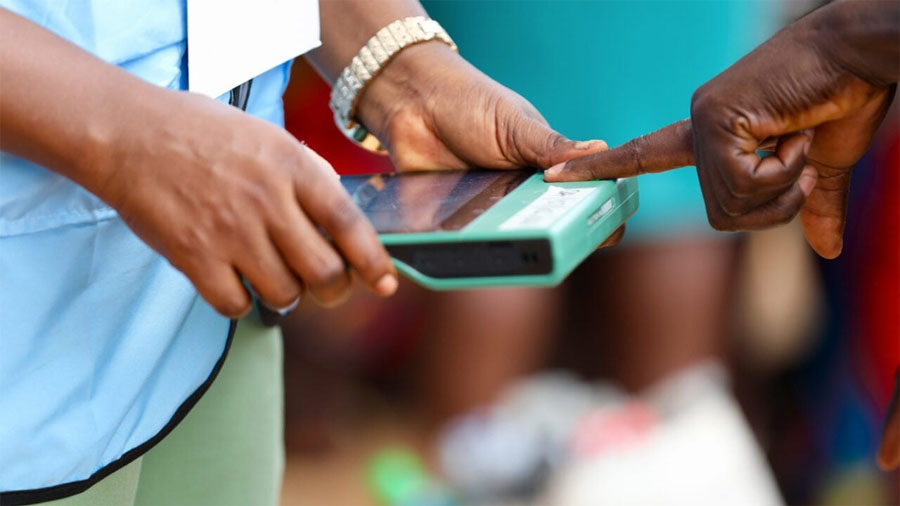
2026 Electoral Bill: Senate Explains Limits of IReV in Real-Time Transmission
The Nigerian Senate has declared that genuine real-time transmission of election results can only be achieved if the Independent National Electoral Commission (INEC) adopts a full e-voting system, clarifying ongoing debates surrounding the review of the 2026 Electoral Bill.
Chairman of the Senate Ad-hoc Committee on the Review of the 2026 Electoral Bill, Adeniyi Adegbonmire, made the clarification during an interview on Arise News Channel on Thursday.
According to him, the INEC Result Viewing Portal (IReV) was never designed to function as an electronic voting platform and cannot deliver instant transmission of votes under Nigeria’s current manual voting structure.
IReV Is Not an E-Voting Platform
Adegbonmire explained that IReV is strictly a results publication portal. He stressed that ballot papers are thumb-printed and counted manually at polling units before results are entered into Form EC8A by the presiding officer.
“It is the Form EC8A that has been filled manually and will be transmitted to IReV,” he said, adding that changing the terminology in the Electoral Bill from “transmit” to “upload” would not alter the process.
READ ALSO:
- El-Rufai to Appear Before EFCC After Alleged Airport Arrest Attempt
- Four Sentenced to Death for Murder of Ahoada DPO in Rivers
- Nigerian Army Rescues Eight Kidnapped Wedding Guests in Kano
The senator dismissed claims that the Senate intends to stop INEC from using IReV in the 2027 general elections, describing such reports as misinformation.
“The Senate never said INEC should not use IReV for the 2027 elections. IReV is software developed by INEC to publicise results already declared at polling units. It is not an e-voting platform,” he stated.
Manual Voting Still Determines Results
Under Nigeria’s current electoral framework, voters cast ballots manually, and votes are counted by hand at polling units. The presiding officer then records the figures in Form EC8A, which must be signed and countersigned by party agents before being uploaded to IReV.
Adegbonmire emphasised that electronic transmission begins only after manual collation is completed.
“When you have not complied with the proper filling of Form EC8A, you cannot transfer, transmit or upload it,” he said.
He further clarified that electronic transmission does not affect the sanctity of voting, since vote casting and counting remain manual.
Why E-Voting Is Key to Real-Time Results
The senator argued that for true real-time election result transmission, Nigeria would need a system where votes are cast, counted, and automatically transmitted electronically from polling units to a central server — a process only achievable through a legally backed electronic voting system.
Although INEC introduced technology such as the Bimodal Voter Accreditation System (BVAS) and IReV during the 2023 general elections, vote counting is still conducted manually under the Electoral Act 2022.
The ongoing review of the 2026 Electoral Bill has therefore reignited national debate over broader electoral reforms, digital infrastructure upgrades, and the possibility of transitioning to e-voting in Nigeria ahead of future elections.
Lawmakers say adopting e-voting would require substantial legal amendments, investment in secure digital infrastructure, cybersecurity protections, and extensive voter education.
Until then, the Senate maintains that real-time transmission, in the strictest sense, remains unattainable under the present manual voting system.
2026 Electoral Bill: Senate Explains Limits of IReV in Real-Time Transmission
-

 metro19 hours ago
metro19 hours agoIKEDC Sets Feb 20 Deadline for Customers to Submit Valid IDs or Face Disconnection
-

 Education20 hours ago
Education20 hours agoSupreme Court Affirms Muslim Students’ Right to Worship at Rivers State University
-

 metro3 days ago
metro3 days agoFormer NAHCON Chief Explains Why He Stepped Down, Denies Conflicts
-

 Business2 days ago
Business2 days agoDangote Refinery Slashes Petrol Price to ₦774, Ends PMS Bonus Window
-
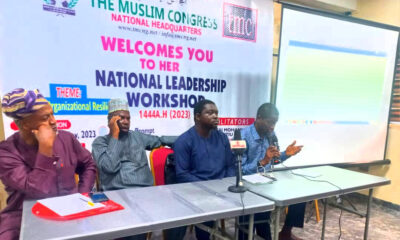
 metro2 days ago
metro2 days agoKwara, Katsina Bloodshed: TMC Condemns Attacks, Dismisses ‘Jihadist Preacher’ Claims
-

 Business22 hours ago
Business22 hours agoNaira Could Trade Below ₦1,000/$ With Dangote Refinery at Full Capacity — Otedola
-
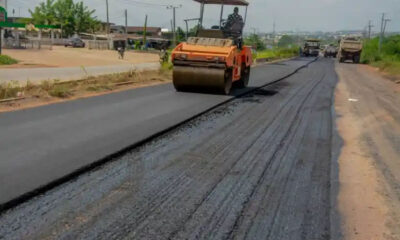
 News3 days ago
News3 days agoLagos Announces Four-Week Partial Closure of Lagos-Abeokuta Expressway
-
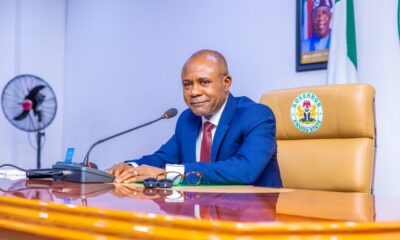
 metro3 days ago
metro3 days agoGovernor Peter Mbah Orders Closure of Bet9ja Operations in Enugu





